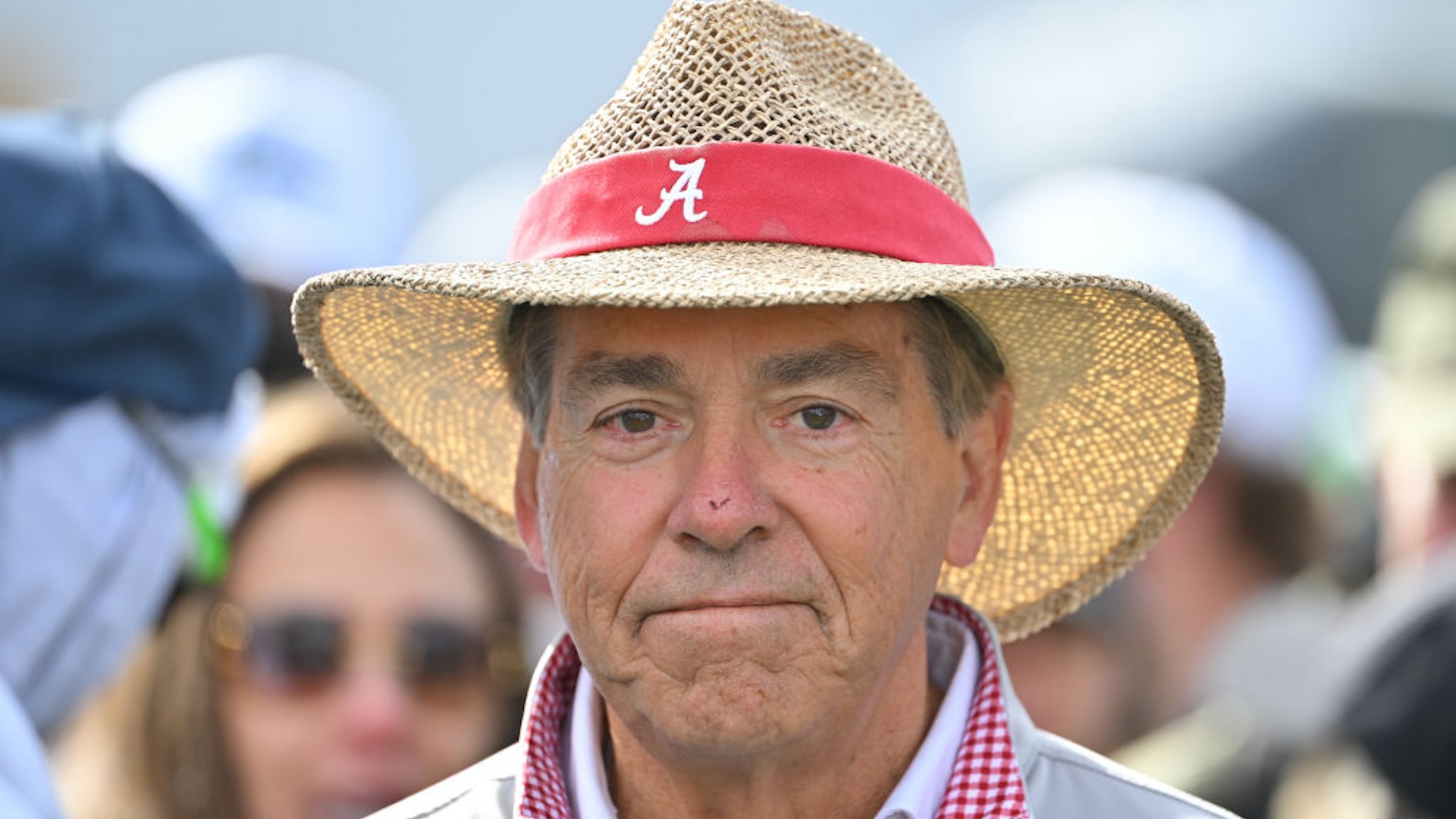It's been a little over a month since Nick Saban retired from coaching the Alabama Crimson Tide, and he has already found a new vocation: being the latest old guy who goes on TV, makes shelter-dog eyes, and says, Pwease, pwsease, won't someone save cowwege footbawl?
Saban sat down for an interview with ESPN on Wednesday, and he spent a good amount of time expressing his dismay at the current state of college football. Saban's problems with the sport are the same you've heard expressed a thousand times by coaches and administrators who are still feeling the whiplash of suddenly working in a sport where the labor force has access to something like a free market. Saban wants to stop what every old fogey in the sport wants to stop: players leveraging NIL rules and the transfer portal to find the most lucrative situations for themselves. His comments on that front were well-drilled and familiar—like everyone else from his cohort, he thinks NIL collectives are out of control, that players jumping from team to team every season is bad, and that college football is losing some of its soul.
Where Saban stumbles is also where everyone else in his position starts to lose their footing, because he is incapable of proposing a solution that both adheres to his vision of college sports and makes any goddamn sense. From ESPN:
"People can give money to the university again and get a tax deduction for doing it, and the university in some kind of way shares, whether it's share revenue, whether it's buying marketing rights, which is a possibility," Saban suggested. "You can buy somebody's marketing rights as an institution, and I don't want to say cap because that sounds like a salary cap, but find a way for schools to invest the same amount of money in players, just like everybody can invest the same amount in a scholarship. This becomes a part of the scholarship."
And while Saban wants to see players get their share of the financial pie, he said the only way any of this works is if there's also a commitment on the players' side.
"Just like an NFL player has a contract or a coach has a contract, something in place so you don't have all this raiding of rosters and mass movement," he said. "I wonder what fans are going to say when they don't even know the team from year to year because there's no development of teams, just bringing in new players every year."
Saban said he is not nearly as well versed on the legality of everything as such people as SEC commissioner Greg Sankey or Alabama athletic director Greg Byrne.
ESPN
This sort of chin-stroking—which produces ideas that tiptoe toward specificity before scurrying away in a panic and acknowledging that there hasn't been much thought put into important questions like, "Is that actually legal?"—is encountered pretty regularly these days on the topic of "saving" college football. The reason this brand of nonsense keeps getting spit out by Saban and others who share his concerns is because their ideas are constrained by the incoherence of their vision for the sport. What they want—some system that allows players to earn money but also restricts their movement without recognizing them as employees—does not make any sense, and that's how you end up with Saban talking in circles about a salary cap that's somehow not a salary cap, because he knows that salaries are something that employees have, and that caps are something that are collectively bargained between labor and management. It's how you end up with him suggesting that players be committed to their programs by "something in place" that is somehow not a contract, because contracts are what professionals sign. Watching Saban talk about this stuff is like watching someone try to teach geocentrism in 2024.
If there's one thing that's particularly galling about these instances in which someone like Saban pipes up with their sob story about how unrecognizable they now find the sport they fell in love with, it's that they never acknowledge who is actually doing all the meaningful rearranging. Players negotiating deals with NIL collectives while hopping in and out of the transfer portal is no more chaotic or mercenary than unceasing conference realignment and consolidation, which sees programs scrambling from one boat to the next in the hopes of getting a bigger share of billions of dollars in TV revenue. For years the NCAA and the conferences were able to maintain the illusion of amateurism with one hand while further professionalizing with the other, but post-Alston the contradictions have been heightened to such a degree that any attempts to maintain the status quo are now obviously illegal.
Saban and coaches and administrators can stomp their feet about this as much as they want, but there's no going back. The more time they spend refusing to acknowledge what's painfully obvious to everyone else—that the only path forward is full professionalization—the more time we'll have to spend watching them scramble around for a solution that doesn't exist. If nothing else, it's going to get pretty boring.






